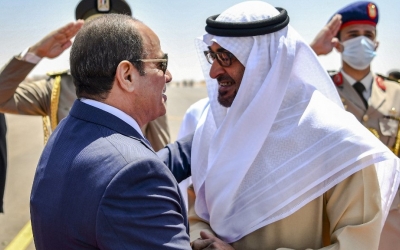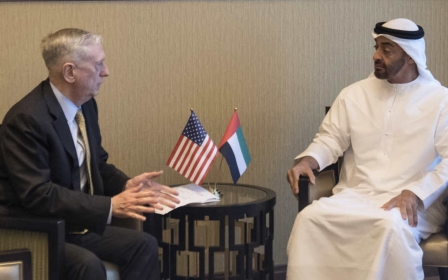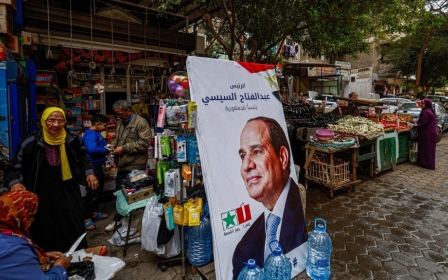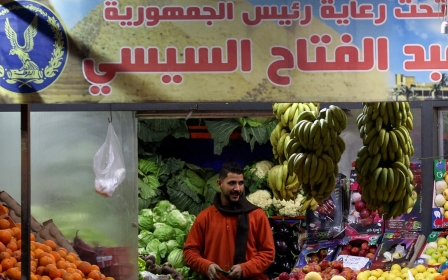Egyptian official confirms $22bn sale of Mediterranean town to UAE investors
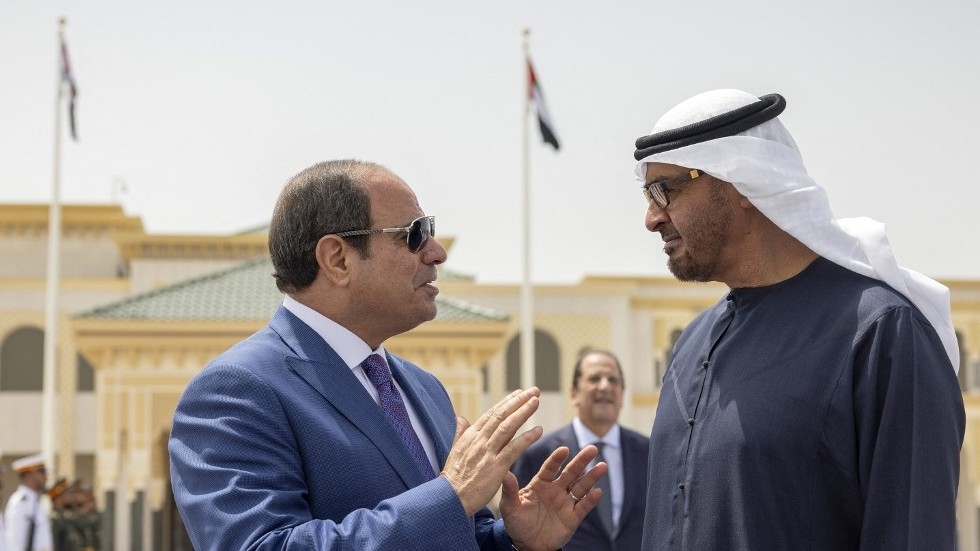
An Egyptian official on Wednesday confirmed rumours that Emirati investors will buy a premium Mediterranean town on Egypt’s northwestern coast after weeks of speculation about a multibillion dollar deal.
Previously unconfirmed reports have triggered widespread condemnation of the deal, which critics said would give up one of Egypt’s most beautiful coastal areas, Ras el-Hikma, for the sake of attracting foreign currency.
Egypt’s national currency has plunged by more than half against the US dollar over the past year on the black market.
An International Monetary Fund mission concluded a two-week visit to the country on Thursday for talks on a potential bailout deal that could reach $10bn and is expected to be followed by currency devaluation to match black market rates.
Hossam Heiba, the head of the state-run General Authority for Investment and Free Zones, told the CNBC Arabia channel on Wednesday that a project for developing Ras el-Hikma is estimated to cost $22 billion.
New MEE newsletter: Jerusalem Dispatch
Sign up to get the latest insights and analysis on Israel-Palestine, alongside Turkey Unpacked and other MEE newsletters
“We’ve received offers from several consortiums, and an Emirati one was chosen to implement the project,” he said. He added that the initial investments for the project may exceed $22 billion and will not be paid in one go.
“The UAE consortium will be responsible for financing, developing and managing the project,” Heiba said.
“We have finished the negotiations and are now preparing to sign contracts,” he said, pointing out that local and foreign companies will participate in implementing the project.
Last week, pro-government media outlets circulated reports about the deal, promoting it as a solution for the country's economic woes.
Popular backlash
The government of President Abdel Fattah el-Sisi has included the Ras el-Hikma area in its urban development project for the northwestern coast, planned to be completed by the year 2050.
Egyptian talk show host Ahmed Mousa, known as a government mouthpiece, said on X last week that the deal would allow for investments in Ras el-Hikma that would “end the exchange rate crisis”.
The news has, however, triggered condemnation by Egyptian opposition figures.
Hisham Sabry, a former security official who is now a critic of Sisi, called Ras el-Hikma “paradise on earth”. “I seriously cannot keep up with Sisi’s disasters. He is walking at the speed of 250 accidents per hour,” he wrote on X.
Amr Waked, an actor and filmmaker, also lashed out at Sisi in response to the report, saying: “Who gave the right to the so-called Abdel Fattah el-Sisi to sell Ras el-Hikma? I mean, was it his mother's inheritance or his father's?”
Mamdouh Hamza, another Sisi critic, said the project should be handed to Egyptian developers rather than foreign ones.
Hamza, who described Ras el-Hikma as "Egypt's most beautiful beach", said: "It would be wiser for the project to be developed by Egyptian developers able to pay in dollars, because in that case the returns will remain inside the country. A foreign developer will transfer profits, which are many times the price of the land, outside the country in foreign currency."
Emirati investments in Egypt's north coast have previously caused an uproar after experts said that a UAE-run project in Sidi Abd el-Rahman caused potentially irrevocable damage to beaches.
Egypt, home to more than 109 million people, is grappling with a severe economic crisis, with record inflation and foreign currency shortages.
In August, annual inflation in Egypt reached close to 40 percent, according to official figures, plunging many Egyptians near or under the poverty line. More than half the population had already been below or close to the poverty line before the current crisis.
‘It would be wiser for the project to be developed by Egyptian developers able to pay in dollars, because in that case the returns will remain inside the country’
- Mamdouh Hamza, critic of Sisi
Sisi was reelected for a third term in December, after a vote marred by the exclusion of opponents and mass mobilisation of citizens using bribes and intimidation.
It is widely believed that a devaluation of the pound, one of the IMF's conditions, was delayed until after Sisi's election to avoid popular reactions that would have disrupted the electoral process.
Foreign debt has quadrupled, reaching $164bn, over Sisi's almost 10-year presidency. Debt servicing is currently consuming most of the state's annual expenditures.
Egypt's total foreign currency reserves are $35bn, but in 2024 alone, the state is due to pay $30bn to creditors.
According to the Egyptian Central Bank, the ratio of short-term debts to foreign currency reserves in 2022 passed 80 percent, double that of 2021.
Sisi on Wednesday ordered a 50 percent increase in minumum wages, amid speculation about an imminent devaluation and subsequent inflation.
Middle East Eye delivers independent and unrivalled coverage and analysis of the Middle East, North Africa and beyond. To learn more about republishing this content and the associated fees, please fill out this form. More about MEE can be found here.


